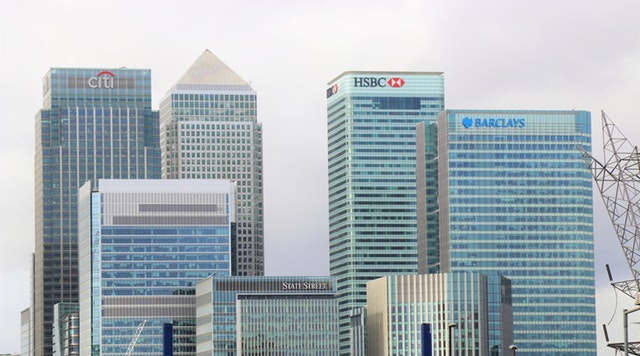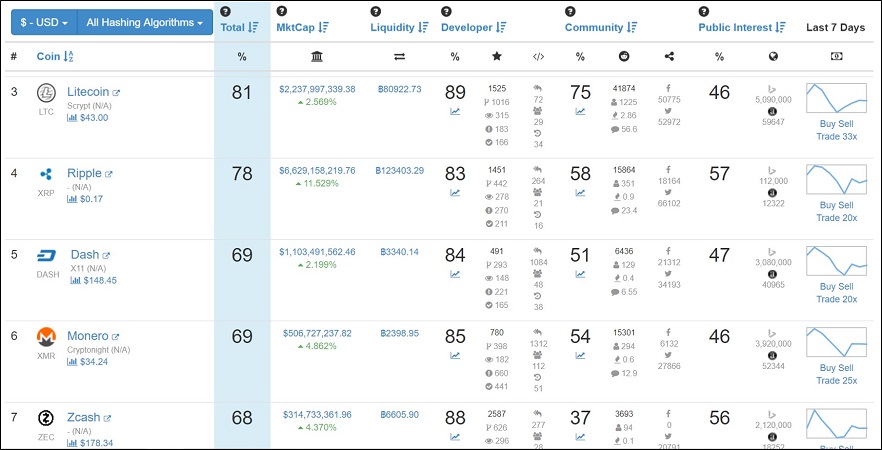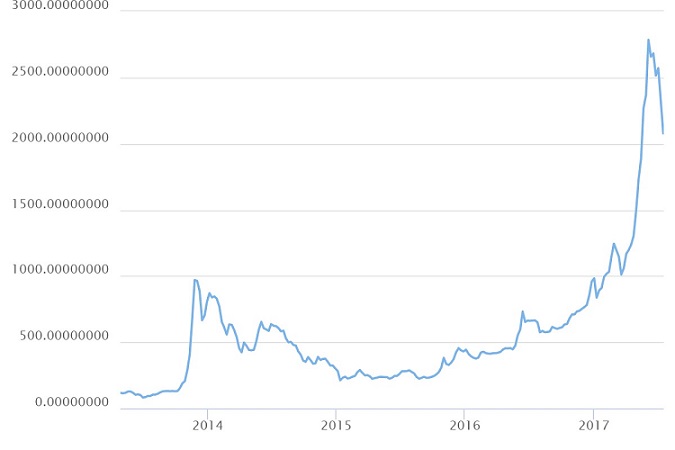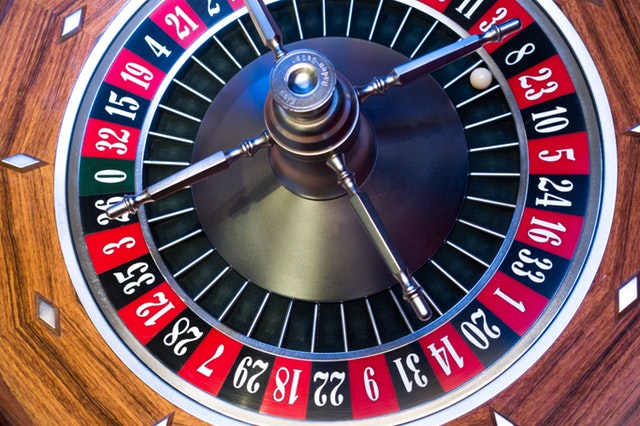WordPress, the blogging software I’m writing this on tells me that “cryptocurrency” is not a valid word. There’s a squiggly red line under it. Surprisingly, Bitcoin is (though not “Bitchcoin.” I tried).
This isn’t going to be a promotional article about why you should invest in hot cryptocurrencies like Bitcoin and Ether. You probably shouldn’t.
But the world is changing quickly. Obviously faster than some dictionaries can. And I’ve been so enchanted by the world of cryptocurrencies recently — that I’ve actually put some money in, and spend lots of my time reading and talking about it now. Heck, I’m even taking some online courses and planning to start mining — just for fun.
Why would a historically risk-averse investor like myself (apart from cryptos, the riskiest things I own are low-cost, moderate-risk mutual funds) get involved in something as risky as this? I thought I’d write an article explaining why I’m so excited about all this. And maybe by the end of it, you’ll be excited too.
(Full disclosure: I own Bitcoin and a couple of other cryptocurrencies. If you buy it, the price might go up. And I of course stand to gain if the price goes up.)
WTF Is a Cryptocurrency?
Investopedia‘s description is pretty good: a cryptocurrency is a digital currency that uses cryptography for security. And it comes with a set of rules — for example, how it’s created, how it’s transferred and how it’s accounted for. The great (or alarming) thing about cryptocurrencies is they’re decentralized. No one body is supposed to control it. Instead, control is distributed over thousands of computers (a.k.a. nodes) across the Internet.
Think about it as a modern kind of money, available to humanity through the wonders of technology and the Internet.
Now we could get into all kinds of philosophical discussions about what money is and what money isn’t, but for the purposes of this article — let’s assume money is stuff you can give people to get other stuff: like food. So “money” could include cash like US dollars and Malaysian ringgit, but also could be something totally non-paper like a gold bar or even a candy bar.
All our lives, we’ve been taught that the government needs to regulate and control money. Why is this RM 20 note worth RM 20? Is it because of the cute orange sea turtle at the back of the note? No, it’s because the Malaysian central bank says so (look, the Governor even signed it personally!), and we trust that institution.
Okay, maybe we don’t think about it so deeply, but because we (and everyone around us) continue to use paper money, we’re showing that we trust the system.
But why is trust so important when dealing with money? And what happens when there’s no central authority for people to rely on? This is where most of us need to stretch our minds a bit.

Traditional Money: In Central Banks We Trust
Trust is important because without it, nobody would dare to use money. For example, let’s say I’m selling you a book for one RM 50 paper note. I wouldn’t accept that RM 50 note from you, if I wasn’t 100% sure that I can give it to Tesco for a bag of rice. When everyone trusts in the currency, the system works.
So the book sellers get to sell their books and the farmers get to sell their rice. Everyone gets food and education, and we’re all happy.
But what if nobody trusted in the RM 50 note? It would stop functioning as money because people wouldn’t accept it anymore. Now this might seem crazy. Why wouldn’t anyone trust in notes, when we’ve been using them all our lives?
Well, it just so happens that you’re likely reading this from a rich country — so you’ve never experienced people losing confidence in government-printed money. But it has happened before, like in Zimbabwe, and continues to happen in places like Latin America.
Traditionally, how we’ve maintained trust is by having a central authority manage the money. Usually this means a strong and credible central bank. But it comes with problems of its own. Like, what if people start to believe the central bank is corrupt or incompetent? Or what if it gets hacked?
Trust in One or Trust in Many?
The radical thing about cryptocurrencies is, trust has now been decentralized. Instead of Big Brother setting rules about money, the many computers that are part of the cryptocurrency network perform this in a democratic way. Instead of a central bank printing money with tons of security features that only they can verify — thousands of voluntary computers across the Internet now verify cryptocurrency transactions together.
It’s no longer Bank Negara Malaysia saying the RM 20 note in your pocket is worth RM 20; it’s thousands of connected computers saying the 1 BTC (informal currency code for bitcoin) in your wallet is valid, and it belongs to you.
If this sounds complicated and is making your head spin, it’s okay. I’ve been into this for a couple of months now and I still have cross-check almost every paragraph I write.
The most important takeaway from this part is that we already have evidence that distributed systems for “Internet money” can work. Bitcoin is the first and most evident proof of this, with a total market capitalization of over 36 billion USD now. But there are many other cryptocurrencies out there too.

Power to the People?
“Over the years, power has transferred from governments to banks to corporations; and now its transferring to platforms and individuals.”
– Author unknown –
Most of us have been trained that important “life” things always need central authorities. For example, education “needs” an education ministry to approve syllabuses and certify universities. Work “needs” a Human Resources department to set rules. And money “needs” a central bank.
So I understand how a decentralized system like Bitcoin might make you feel very uncomfortable. “What if someone hacks my money!? You mean there’s NO governing authority to protect me?!” But our world is changing rapidly, so I think we need to adapt, or at least be aware of new ways of doing things.
We’re about 1,000 words into this article now, so you might be thinking: “Thanks for sharing useless geek knowledge with us Aaron — now let me get back to watching Game of Thrones.”
So let me throw you some mind-boggling figures to keep your attention. The thing that seems to be attracting most people to Bitcoin are sentences like below, which keep showing up everywhere:
“If you’d bought $100 of bitcoin 7 years ago, you’d be sitting on $75 million now.”
– via CNBC –
But Isn’t Bitcoin Some Kind of Scam? My Mother Said to Stay Away!
With all respect to your mother, no — Bitcoin is not a scam.
But of course, like anything related to money on the Internet — it’s linked to lots of scam-ish people who will milk you dry if you’re not careful.
Your mother just wanted you to be careful and not lose all your money. It’s wise to not put money into things you don’t understand. You need to do your research first.
Rule of thumb: If an “investment” promises you a 74,999,900% gain in 7 years — it’s 99.999% a scam. Heck, even notoriously successful scams just promise you 240% per year. And yet, here we are — Bitcoin and cryptos with their very scam-ish returns. I don’t blame you if you’re very skeptical about all this. It’s a very high-risk world we’re talking about.
But if you’re willing to spend some money to get involved in some really interesting cutting-edge technology though…
How to Buy (& Sell) Cryptocurrencies
You can buy Bitcoin from an exchange, which is an online destination where you exchange fiat “real” money like USD for bitcoins.
Some common exchange names that you might hear are Coinbase, Bitstamp, Kraken and Poloniex.
Many exchanges also offer additional services, such as storing your bitcoins in a wallet, exchanging them to other cryptocurrencies, and displaying real-time technical trading info.
(For converting Bitcoin to other cryptocurrencies, I currently use Poloniex, though I’m considering several other options.)
If you’re based in Malaysia like me, and want to convert Ringgit Malaysia directly into Bitcoin, you can use the UK-based exchange Luno, which I personally use as well.
Use my referral code at Luno here. Buy more than RM 250, and we’ll both get RM 5 for free.
Why Would I Buy Though? Isn’t Bitcoin in a Bubble?
I don’t know. A lot of smart people and banks are commenting that the whole Bitcoin and cryptocurrency surge recently is a bubble. If you look at the graphs, it does look crazy right?

Some people are saying things remind them of 1993 — when the World Wide Web was still taking off. I think it’s a great analogy.
Of course, there was a huge dot-com crash in 2000, and a lot of the overvalued companies went down.
But look at some of the survivors today: like Amazon and eBay. Still relevant and still killing it.
Will the Bitcoin “bubble” burst and make a lot of people lose money? At some point, I think so. But one thing we’ve learned from the dot-coms of the 90s — is that the Internet did change the world and revolutionize our lives. A lot of startups were crazily overvalued and many of those entrepreneurs had no idea how to run businesses — but many of their visions for the future eventually came true.
It’s just that we had to go through growing pains first.
Getting in and FOMO
If you’ve read to this point, you can probably feel my excitement. But some of you smart people are already asking: “Are you just buying because of FOMO?”
Great question. Am I buying into cryptocurrencies because I’m thinking rationally, or because I’m just caught up in the hype? If I’m being honest, it’s probably both. But let me explain the reason for my FOMO.
20 years ago, if I wanted to be part of the fledging World Wide Web, when Yahoo and Amazon were exploding onto the scene — what was I supposed to do? It wasn’t easy to invest. Particularly being a Malaysian based in Malaysia: Unless I had vast resources or huge connections, there was no way I was going to be part of Yahoo’s IPO.
Today, if I want to put some money into a crypto-related startup — I can buy into an Initial Coin Offering (ICO, a new way of raising money) with relatively small amounts of money. Not that I’m suggesting you should; ICOs are unregulated and even riskier than Bitcoin. But what I’m saying is — it’s so much easier to get involved now.
“So are you saying that we should all start buying cryptocurrencies?”
No, I’m not. I think you need to be aware of them and the technology behind them. If you wanna buy go ahead, but first I’m gonna give you five reasons why you maybe shouldn’t.
5 Reasons Why You Shouldn’t “Invest” in Cryptocurrencies
1. No one knows exactly what will happen to the markets. (Though of course you could say the same thing about the stock market and life in general.) Cryptocurrencies are very young. Even big brother Bitcoin is only 9 years old. Some people say most cryptocurrencies will eventually fail, and only a few will survive.
2. There’s no centralized regulation. Who regulates the stock markets? The securities commissions of each country. Who regulates monetary supply? The central banks. Who regulates Bitcoin? A set of rules, and a distributed bunch of people all over the world (many in China) whom you’ve never met and probably never will. I think most people would rather trust our esteemed leaders of the governments of the world like Trump, Putin and Najib than those weird tech geeks, right? 😀
3. It’s volatile like hell. I’ll share my personal experience here. I was pretty late to the Bitcoin and cryptocurrency party. But even then I tripled my money in a couple of months. With cryptos crashing recently, my holdings are something like 2 times my initial investments. But by the time you read this, things will have changed again. Maybe everything will have gone down to 0. Or maybe it’ll have become 5 times.
How volatile is volatile? Swings of 10-20% per day are common. Even online articles can’t keep up with what’s happening in the markets.
4. You could get hacked and lose your money. So if you’re interested, please protect yourself well.
5. Most cryptocurrencies aren’t fundamentally designed to be investments, the way stocks and mutual funds are. It’s more like dabbling in Forex — but with huge risks.
But… The Potential Returns Are So High!
Do I think you should invest in Bitcoin? No, really — that’s the wrong word to use. I think the proper word to use here is speculation.
If you’ve got plenty of savings in the bank for emergencies. If you’ve already got other stable investments. If you have balls of steel and a stomach that can handle risk. If you want to experience firsthand the thrill (and learning experience) of being in the Wild Wild West.
And if you have some money that you can afford to lose — because the chances of losing are high.
But instead of buying the latest iPhone, I think whatever you dump into Bitcoin will be worth something more in three years. And the learning that you’ll get — priceless.
Some of the more “sensible” articles I’ve been reading have suggested putting 1% of your net worth into Bitcoin and cryptocurrencies. Worth a try?
Maybe Bitcoin goes to 100,000 USD and you make 40x your money. At worst, it goes to 0, you lose RM 1,000 (assuming your net worth is RM 100k, though I have a feeling if you’ve read this far — it’s more) and have some interesting stories to tell your kids.

What About Blockchain, the Technology Behind Bitcoin?
This is my favorite part. I’m no fintech expert and I don’t have any crystal balls. But looking back at history — maybe the timeless story of the California Gold Rush can help.
Back around 1850, gold was discovered in California for the first time. Hundreds of thousands of people started pouring in, looking for gold and their path to riches. But most people didn’t actually make much. And the people that actually made money were the ones selling tools, not the ones looking for gold.
I see a few parallels between that Gold Rush, and our Gold Rush today. While we don’t need to physically dig for gold anymore, you can now put your computing/money resources to mine for virtual gold. But are the people really making money the miners, the traders, or the people creating the mining equipment?
AMD and Nvidia are making record profits right now, because their Graphics Processing Units are being used to mine for cryptocurrencies. If you’re reluctant to buy directly into cryptos, maybe consider these stocks instead?
Ultimately though, I think the real value that’s going to come out of all this is technology. In this age of decentralization, and the rise of individuals and platforms — I’m convinced Blockchain is going to change our world.
Bitcoin is of course the most famous application of a blockchain. But I think there’s going to be more value in understanding how blockchains work — because they will change everything, from finance to supply chain to education.
Maybe that will be the golden tools of our era.
– – –
Ending with one final story. About 10 years ago, I built a simple computer CPU using easily-available chips for my final year engineering project. The design wasn’t mine — I merely built it with permission from the creator.
In line with our professor’s expectations, my friend (who built an even-more impressive one) and I put our designs on a Geocities website. Anyway, we received a comment from someone overseas who was working for a weird startup — saying he was looking for hardware engineers in the Asia Pacific region.
I had tunnel vision — thinking that my destiny was fixed: to serve the national oil company who paid for my education. So I didn’t even consider the offer. Besides, what kind of weird company hires people by messaging them on obscure websites? I need a formal paper offer letter man! So I didn’t ask anybody, and just ignored the comment.
Anyway, that weird startup turned out to be Google. And sometimes I look back and realize how I often make very questionable decisions. (I still do.) While I have no regrets, I’m sure I also missed out on a lot of cool experiences; experiences that I could only have obtained by getting involved in cutting-edge technology.
I’m not missing out this time.
– – –
Despite all the risks, if you still wanna buy some Bitcoin, you can use my referral code at Luno here. Buy more than RM 250, and we’ll both get RM 5 for free.
Here’s a further description on Bitcoin that a 5-year-old could understand.
My friend Suraya wrote a great Bitcoin article from a Malaysian context here.
Pics from Pixabay, Pexels, Pexels, and CoinGecko.




Thank you! This post was so helpful in helping me understand some basics of crytocurrencies. My boyfriend had recently engaged in an ICO for a cryptocurrency platform but I had such a hard time wrapping my head around the entire idea. Thanks to you, I have a much better understanding now. 🙂
Thank you Maygee — glad I could help!
Hello, I like the way how you explain cryptocurrencies and trading. I did went into trading and experienced the volatility. Since you mentioned that you triple your investment in several month, i would like to seek your advise on which news outlet/portal did you follow to make buy/sell decision ?
Thank You
Thanks Nicholas,
I follow mostly mainstream articles on CNBC/Forbes/Wall Street Journal although I also read crypto-specific news like CoinTelegraph and TheMerkle. Also, I don’t buy and sell. So far, I’ve been buying and holding… 😀
Do you know why was I charged a much higher rate when I purchased bitcoin in Luna using the instant buy? Ie the price was around 191xx but the purchase was at 195xx
I think the factor at play here is whenever you put a “Buy” bid, and you want it instantly, you’re always going to be paying a premium (because you need to instantly match with someone else’s “Sell” bid). There is an option where you can set your own “Buy” price, however then you’ll have to wait for the market i.e. a seller’s “Sell” bid to match with yours before it goes through.
Did you do bitcoin mining as well? Or only trading? Would love to see your experiment result with casual bitcoin mining with your current at-home PC.
Hello Arham,
I don’t really trade. More like buy, hold and pray.
Currently in the process of building a mining rig, but it will likely be mining Zcash, not Bitcoin. Will document that as well when I get some time!
Gives a good introduction for someone who never knew what Bitcoin and Cryptocurrency are all about… Simple, brief and light article… I strongly believe one fine day Bitcoin will turn out to be one of the major international currency – internet currency… Wish you good luck and keep mining brother
Thanks Ganesh,
I strongly believe that there’s a lot of upside in Bitcoin and cryptocurrencies, so hoping I didn’t get in too late. Wishing you the best too!
Is it taxable for profit make from Bitcoin?
Gray area I think. Authorities here haven’t recognized Bitcoin as a legal currency yet. Also with Bitcoin being a distributed system all over the world — I don’t think you could say any profits made were in Malaysia.